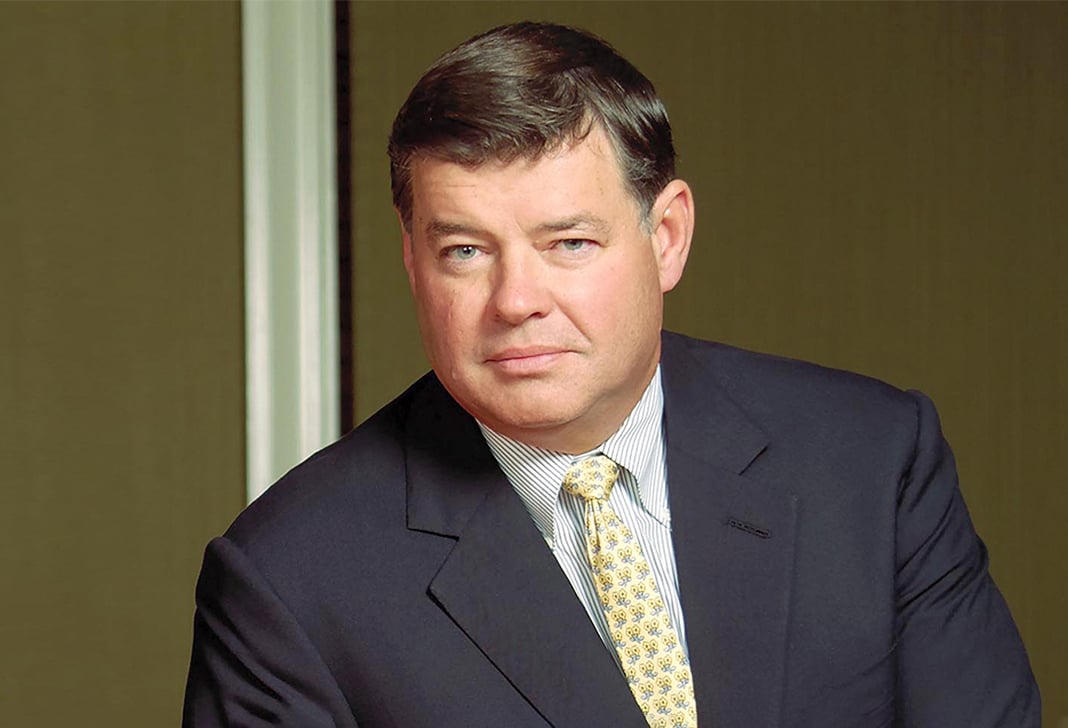Jones Day's MP on Why Firm's Fight Against Heller Trustee Was Good for Clients, The American Lawyer
Jones Day's managing partner, Stephen Brogan, explains why his firm refused to settle with the trustee of bankrupt law firm Heller and why his firm's win last week in the California Supreme Court is good for clients.
Reprinted with permission from the March 13, 2018, issue of The American Lawyer’s AmLaw Daily.© 2018 ALM Media Properties, LLC. Further duplication without permission is prohibited. All rights reserved.
Last week's unanimous decision by the California Supreme Court reaffirmed a principle that Jones Day fought for years to defend: Clients (and their matters) are not the property of the lawyers who represent them. The ruling represents a win not only for the law firm defendants in the case, but for their clients and for the legal profession as a whole.
In the aftermath of the financial crisis, a number of law firms failed. Many of their partners joined other firms that had better planned for and weathered the storm, including Jones Day. Clients made their own choices about which firms would represent them going forward. But the bankruptcy estates of the defunct law firms wanted to reach out from the grave and claim a property interest in the work that was done by other firms after the bankrupt firms dissolved.
The first time in recent history that this issue was litigated came in the wake of the 2003 fall of Brobeck, Phleger & Harrison. In that case, the bankruptcy court held, under Jewel v. Boxer (a case from California's intermediate appellate court), that the matters Brobeck was handling at the time of its dissolution were its property. That meant that its former partners had a duty to account to the bankrupt firm's estate for profits generated by "completing" the "unfinished business" at their new firms. Ironically, Brobeck itself had waived that duty (so as to facilitate partners moving to other firms and to ensure that clients would receive the best possible service), but the bankruptcy court deemed the waiver a "fraudulent transfer." After that ruling, the affected firms settled, which scuttled appellate review and emboldened bankruptcy trustees in future cases.
Fast-forward to the demise of Heller Ehrman in 2008. Seeking to apply the Jewel doctrine, the trustee for Heller's bankruptcy estate claimed that hourly matters that Heller was unable to handle as a result of its financial collapse were Heller's "property." The trustee further claimed that Heller was entitled to profits earned by dozens of other law firms, including Jones Day, after the clients retained those firms to work on the matters that Heller abandoned. The vast majority of the defendant firms settled. As one article put it at the time, "risk-averse law firms so far have proven largely disinclined to litigate these matters, resulting in dozens of settlements and very little case law to guide other firms' behavior."
But we chose to fight. And though the case has spanned nearly a decade, the California Supreme Court's opinion vindicates our decision. The court's unanimous opinion puts to rest years of litigation by holding what Jones Day has argued all along: "A dissolved law firm does not have a property interest in legal matters handled on an hourly basis, or in the profits generated by former partners who continue to work on these hourly fee matters after they are transferred to the partners' new firms."
To hold otherwise, the court said, would cause "perverse" consequences for "the freedom that clients have in choosing attorneys," for the "mobility of lawyers," and for the "stability of law firms." As to Jewel, the court explained, "Suffice to say that we find nothing in Jewel to advance Heller's position regarding hourly fee matters." Finally, pointing out the unreasonableness of Heller's position, the court added, "What Heller claims here" is an "interest in the hourly matters on which it is not working—and on which it cannot work, because it is a firm in dissolution that has ceased operations." Such a claim amounts to seeking "remuneration for work that someone else now must undertake." Neither "reasonable clients" nor "lawyers seeking to continue working on these legal matters" would share this view. "Heller's expectation is best understood as essentially unilateral." Such "speculative" hope does "not amount to a property interest."
The court joined the likewise unanimous New York Court of Appeals, which in 2014 ruled in favor of Jones Day and rejected these types of claims in the bankruptcy of Coudert Brothers. As that court explained, too, holding that law firms own client matters would contravene "basic principles that govern the attorney-client relationship," award an "unjust windfall" to dissolving firms, and interfere with the "strong public policy encouraging client choice."
These rulings have important consequences for the profession. Firms sometimes collapse. Lawyers also move from one firm to another for myriad other reasons. When that happens, clients must be able to decide which firm will handle their matters (and will be paid for doing so). Recognizing the basic truth that clients, not lawyers or law firms, own their matters protects clients' access to the counsel of their choice.
Indeed, in many contexts—ranging from these kinds of claims to various rankings of law firms and lawyers—some people seem to forget the primacy of clients. Virtually everyone would agree that clients can hire and fire lawyers at will. Yet there have developed ways of talking about the practice of law that assume that individual lawyers have the power to move client matters from one firm to another, and therefore control the revenues generated from client matters. That same flawed concept lies behind the claim that the California Supreme Court rejected.
Clients are the ones who enlist our services. As lawyers, we serve their interests for as long as they entrust their matters to us. Those matters are not our property. They belong to the client. Though it has taken many years to make that point, it was a point worth making.


